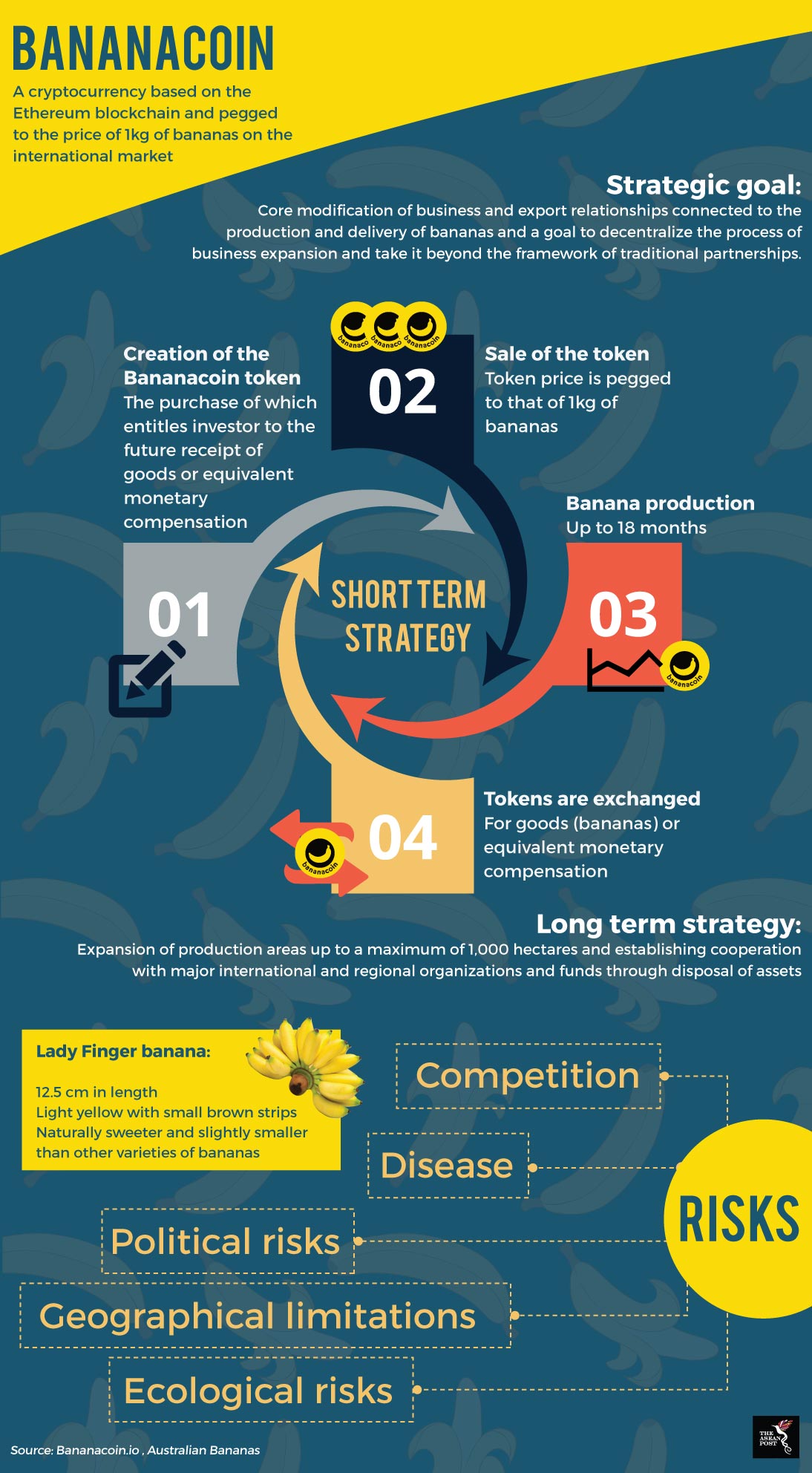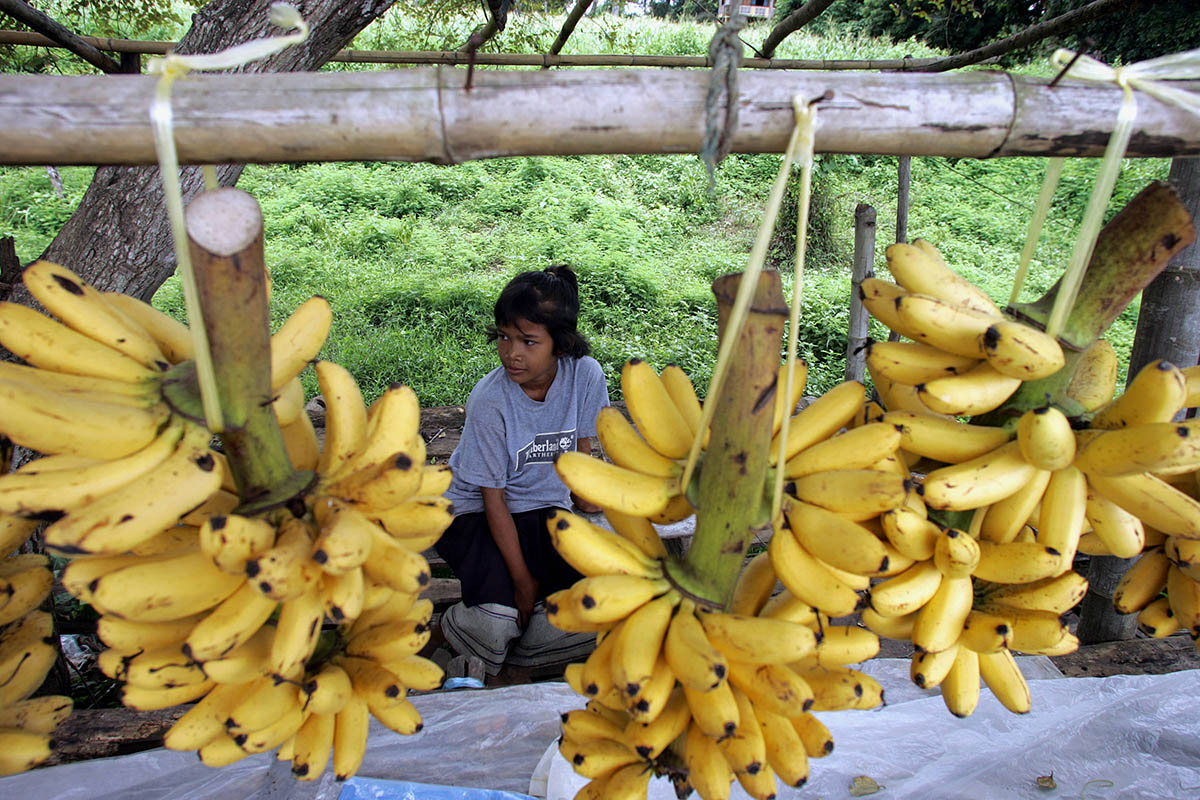The world of digital currency has gone bananas!
Lao based Bananacoin, is the latest edition to the plethora of cryptocurrencies available in the world today. As its name suggests, it is linked to the golden fruit enjoyed by many – bananas.
What is Bananacoin?
The Bananacoin Project was co-founded by entrepreneurs, Alexander Bychkov and Oleg Dobrovolsky with the aim of utilising blockchain technology to revolutionise the banana production industry.
Bananacoin uses the token generation event (TGE) – a crowdfunding model where digital tokens are issued in exchange for investments. This allows backers to invest in the business of banana production and expansion, and become holders of Bananacoin tokens (BCO).
These tokens use an Ethereum blockchain – a digital cryptocurrency ledger where transactions are recorded chronologically and is publicly available. Ethereum was chosen due to its relative stability in comparison with other blockchains in the market today.
Each token is pegged to the export price of 1 kilogram of bananas in the international market. The tokens are issued with the aim of raising approximately US$ 7.4 million dollars and the current price of one token is US$ 0.7.
According to the official website, the BCO “constitutes a type of contract” and cannot be categorised as money or a book entry security.
“Based on the principle of freedom of contract, we can conclude that the Bananacoin token is in its legal nature closest to the notion of a contract to for the purchase of goods to be produced in the future. Tokens of this kind are characterised as Utility tokens,” the official literature states.

Peeling off the surface
The bananas are produced near floodplain territories in Lao’s capital of Vientiane where soil is most fertile and water costs are low. Besides that, relatively cheap electricity rates for agriculture and a high average air temperature make it an ideal place to be cultivating bananas. Moreover, the cost of doing agri-business is cheaper in Lao compared to neighbouring countries and according to the official website, the project has already obtained necessary governmental approval and tax preferences to conduct their business.
The type of banana produced is of the “Lady Finger” variety from the Musa acuminata species which is slightly smaller than other bananas and has a natural sweet taste. It was the chosen crop because of its higher end price in markets and popularity in China compared to other varieties of bananas.
Chinese demand is an integral factor because that is the target market for the sale of bananas. The pitch by the Bananacoin project states that China faces a shortage of areas to cultivate bananas hence, is reliant on imports to feed growing demand. According to statistics by the Observatory of Economic Complexity (OEC), China has been a significant market for Laotian banana exports. 90 percent of Lao’s total volume of banana exports in 2016 valued at US$ 126 million were destined to China.
According to the white paper released by The Bananacoin Project, in the short term, the project aims to expand production areas up to 360 hectares. The long-term strategy involves expanding production areas to 1,000 hectares and “…establishing cooperation with major international and regional organizations and funds through disposal of assets.”
The appeal of this strategy lies in the fact that Bananacoin is backed by a tangible commodity – in this case bananas – and are less likely to fall prey to the volatility of the cryptocurrency market.
It does mean that the value of the token is reliant upon market forces acting on the banana industry. Nevertheless, the white paper released by The Bananacoin Project assures possible investors that bananas are a high demand product and the price per kilogram of banana has increased by an average of seven percent in the last seven years.
However, there are other risk factors present including risk of disease like the Panama disease caused by a fungal pathogen which attacks the roots of the banana plants. Besides that, there is also the risk of competition from neighbouring countries like Vietnam and Cambodia.
With the craze of cryptocurrencies abound – causing its values to fluctuate unexpectedly – this new entrant into the game seems to be offering an alternative to mitigate such risks. The question now is, whether investors will go bananas over this idea.
Recommended stories:
